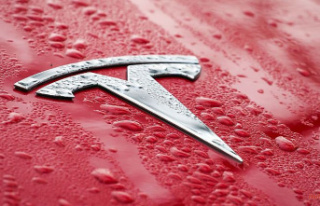Ford is an institution in Cologne. So far, tens of millions of engines have rolled off the production line there - combustion engines, mind you. But they no longer have a future with the US group. And so it is radically shortened. Not the first time. Memories of Opel Rüsselsheim are awakened, management mistakes are repeated.
In the German automotive industry, the transformation of the drive is progressing rapidly: out with petrol and diesel engines and into battery electric mobility. Sometimes even faster than customers want. Either way, the combustion engine, which for a century was the heart and masterpiece of German automotive engineering, is a discontinued model. Engineers for development are no longer needed, nor are employees for the construction and maintenance of engines, transmissions or exhaust systems. On February 14, the EU Parliament reaffirmed the end of combustion engines in Europe: From 2035, new cars should be gone. The old stock can continue. Coincidentally, Ford in Cologne made a spectacular statement on the same day when it phased out proven combustion engine technology.
As long predicted by experts, but persistently ignored by politicians, the structural change in mobility technology that is desired in terms of climate policy but is strongly ideologically colored is leading to a significant loss of jobs in Germany's key industry. Manufacturers and suppliers have adapted to this and are in the process of outsourcing their combustion technology capacities for petrol and diesel either to Eastern Europe or to China - or to give them up entirely.
On the part of well-known suppliers such as Bosch or Mahle, a works council conference on the subject of relocation was recently held in Esslingen entitled "Go East?" instead of. And on the part of the German manufacturers, Ford, at the same time as the decision of the EU parliamentarians, made a start on February 14 with a bang.
Ford has been producing combustion engines in Cologne for more than 60 years. Over 28 million have rolled off the assembly line there so far - including the engine for James Bond's legendary Aston Martin. Right now this will finally end up here. Management announced that Ford will cut 3,800 jobs in Europe in the coming years on the way to electromobility. Of these, 2,300 jobs account for more than half at the European headquarters in Cologne and the research center in Aachen. Ford is aiming for a "smaller, more focused and increasingly electric product portfolio," as Ford Germany boss Martin Sander said.
Development is particularly affected by the downsizing. Unlike previous rounds of rationalization, where the main focus was on reducing costs and jobs in production, this time, in addition to administration, jobs in the development departments at the headquarters in Cologne and the small research center in Aachen are particularly affected. Cuts in development are new. This marks the beginning of a new era for the car manufacturer. Ford is substantially repositioning itself in Europe, so "no valve is left unturned" in Cologne.
Ironically, in engine and product development, generally the nucleus for innovation and guarantor of growth and earnings for every car manufacturer, the number of employees is to be halved. Of the currently 3,600 engineering jobs, 1,700 will be cut. Product development, which is important for European business, will therefore shrink by about half. Ford boss Sander said: "We need a leaner cost structure. No customer will pay us more just because we don't have an efficient development organization."
For the US car company Ford, this step means a turning point. In the wake of the global economic crisis, the American car manufacturer settled in Cologne-Niehl in 1930 and began building cars there a year later. Similar to the GM group with its subsidiary Opel, which it took over in 1929, Ford played a decisive role in the reconstruction of post-war Germany. Ford Taunus, Capri and Fiesta have been brand defining for generations. Ford relied heavily on German engineering and was a place of learning for many generations of car engineers, who then advanced the development of the remaining German car manufacturers.
More than 90 years later, Ford is now announcing drastic structural changes in its European business. An oath of revelation! Because, contrary to any American mentality, the US carmaker is preparing for permanent downsizing in Europe as a result of the phase-out of combustion engine technology.
The shrinking process is not new at Ford, but started in 2020, when the workforce in Cologne was reduced from 17,000 to 14,000. The next prank followed in autumn 2021, when the complete closure of the Saarlouis plant by 2025 was announced. The compact model Focus is currently still being assembled there.
Ford settled in the structurally weak Saarland in 1970. Since then, more than 15 million cars have been built at his Saarlouis plant, which according to factory information is one of the most efficient in the entire Ford group, and exported from there to 80 countries. The last Focus is scheduled to roll off the assembly line there in 2025. New orders will no longer be accepted. There is no successor model for the Focus.
The production of electric cars was discussed as a replacement, but was rejected by the parent company. In the future, electric cars will be built in Valencia, Spain. Around 5,000 employees at Ford Saarlouis directly and around 1,500 in the surrounding supplier companies will lose their jobs. Around 20,000 people, including their families, are affected by the plant closure. A labor market disaster for the small Saarland.
Ford is not only shrinking its own workforce, but also its model portfolio. This means that one no longer believes that one can connect to future market growth on one's own strength. Memories of the downsizing process at Opel Rüsselsheim are awakened. Here, too, the end was preceded by the closure of the Opel plant in Bochum, before and after agonizing years of cost and wage reductions and a thinning out of the workforce. All without effect. In the end, GM withdrew completely from Europe and sold Opel in 2017 to what later became the Stellantis group. Industry experts do not rule out that Ford Cologne is threatened with a similar fate.
Within a few years, the current 19,000 Ford workforce in Germany will have more than halved. While this development initially reflected serious management mistakes by the US group, the cuts due to the transition to electromobility now predominate. The change requires significantly less personnel capacity in development and production. The construction of electric cars is less complex than that of combustion engines, the added value is only 60 percent of a combustion engine.
In addition, Ford has significantly missed its profit targets for 2022 worldwide and is also undergoing a radical cure in the USA: The group announced "very aggressive" measures. High state subsidies from the Joe Biden government for investments in electric mobility on American soil are certainly helpful.












